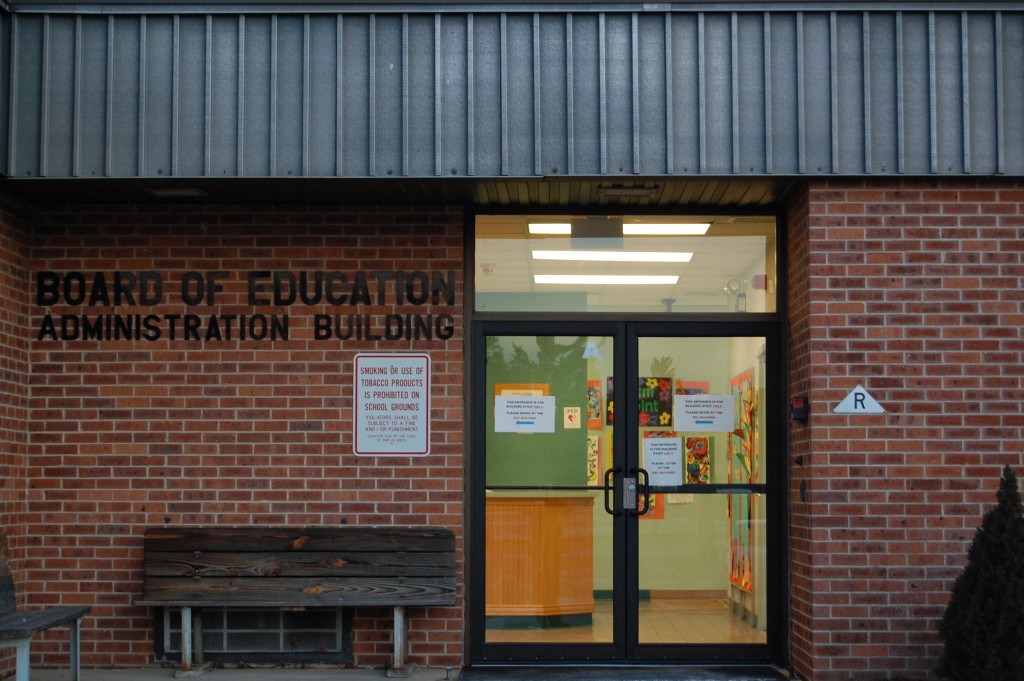The fiscal crisis spurred by state funding cuts to the Brick Township school district led to the Board of Education adopting a budget for the 2021-22 school year which will raise taxes by about $2.2 million while shedding 26 jobs and relying on surplus revenue to close a multi million-dollar budget hole.
“We have a shortfall of almost $7 million dollars,” said Superintendent Thomas Farrell. “We were able to use some surplus and federal revenue sources along with some increased grant funding.”
The district is reeling from the effects of legislation known as S-2, a bill resulting from a deal between Gov. Phil Murphy and state Sen. Steven Sweeney that cuts Brick’s school funding by more than $20 million over the course of seven years and mandates tax increases to the maximum of the state’s 2 percent cap each of those years. The Brick school district is one of several suing the state to restore funding, which was cut by $5.3 million for next school year. A similar cut is expected for the following year.
|
|
Meanwhile, officials said, costs have risen. Salaries and benefits will rise by $3.5 million for the 2020-21 school year, driven by a combination of market forces and a new contract recently approved between the board and teachers’ union. The district will also spend more on capital projects this year, increasing that portion of the budget to $8,017,294 from this year’s $5,790,552. A silver lining is that programs for students, including a diversity of classes, sports and co-curriculars, will be maintained.
“Our central office administrative team has worked very hard to create a budget that is both fiscally responsible and maintains existing programming,” Farrell said.
Brick taxpayers will see a 1.9 percent increase in the school portion of their property tax bills, with the local tax levy increasing to $117,391,709 in 2021-22, up from $115,155,355 for the current school year. The district did not issue figures on how much the increase would amount to for the average homeowner. The total school budget for the 2021-22 school year will be $160,822,670, an increase from $156,405,300 this year.
Sean Cranston, the district’s human resources director, said the equivalent of 26 full-time positions will be cut, though it is hoped that all of the positions being eliminated will be done so through attrition. The positions to be cut include six at the high school level, three at the middle school level and nine at the elementary school level, as well as eight positions within the facilities and transportation departments.
“We are seeing the continued negative affect of the S-2 funding cliff on our district,” Farrell said, referring to the name of the bill which brought force the continuing funding cuts from Trenton.
Where Is the Money Going?
The vast majority of the operating budget – 73.6 percent – is dedicated to salaries and benefits.
The budget will, however, fund several major capital projects. These include a parking lot reconfiguration and repaving at Lake Riviera Middle School, a new roof on the 2004 addition to Veterans Memorial Elementary School, air handlers and chillers at Brick Memorial High School, new boilers at Lake Riviera, Emma Havens Young Elementary School and Midstreams Elementary School, plus a turf replacement on the field of Veterans Memorial Middle School.
The district will also introduce a new math program called i-Ready Classroom Mathematics, which will be deployed in the K-8 level.
“Its instructional routine allows students to take ownership of their learning,” said Alyce Anderson, the district’s curriculum director, who described the curriculum as a “research-based, comprehensive core program” that presents students with real-world problems to solve in order to become proficient in mathematics.
A new environmental science course will be added for 9th grade students, Anderson said.
A Rich District?
The district has lost $14 million in cumulative funding from the state since the S-2 bill began affecting annual budgets. Under the state’s formula, Brick is considered a wealthy district whose residents should be paying higher taxes to support its school system.
According to the state’s figures, Brick residents should be paying about $30 million in additional school taxes every year to reach what is considered full adequacy for the constitutionally-mandated “thorough and efficient” education. An increase by that amount would add $851 to the average resident’s tax bill, Business Administrator James Edwards said, reiterating that officials strongly feel the state’s formula is flawed.
“Under the current funding formula, Brick schools are considered wealthy, able to provide 100 percent of the [Department of Education] determination of what is a thorough and efficient education,” said Edwards. “A wealthy community – one where currently 34 percent of the children receive free and reduced meals – is something that just does not make sense.”
“This problem doesn’t get better next year, as the district is scheduled to lose another $5 million,” Edwards continued. “As I’ve stated before, we do not have an expense problem, we have a revenue problem.”

Advertisement

Police, Fire & Courts
Teacher From Brick, 36, Charged With Carrying on Affair With Student
Brick Life
Adult Autism Transition

Police, Fire & Courts
Teacher From Brick Charged in Another Sex Affair With Student









